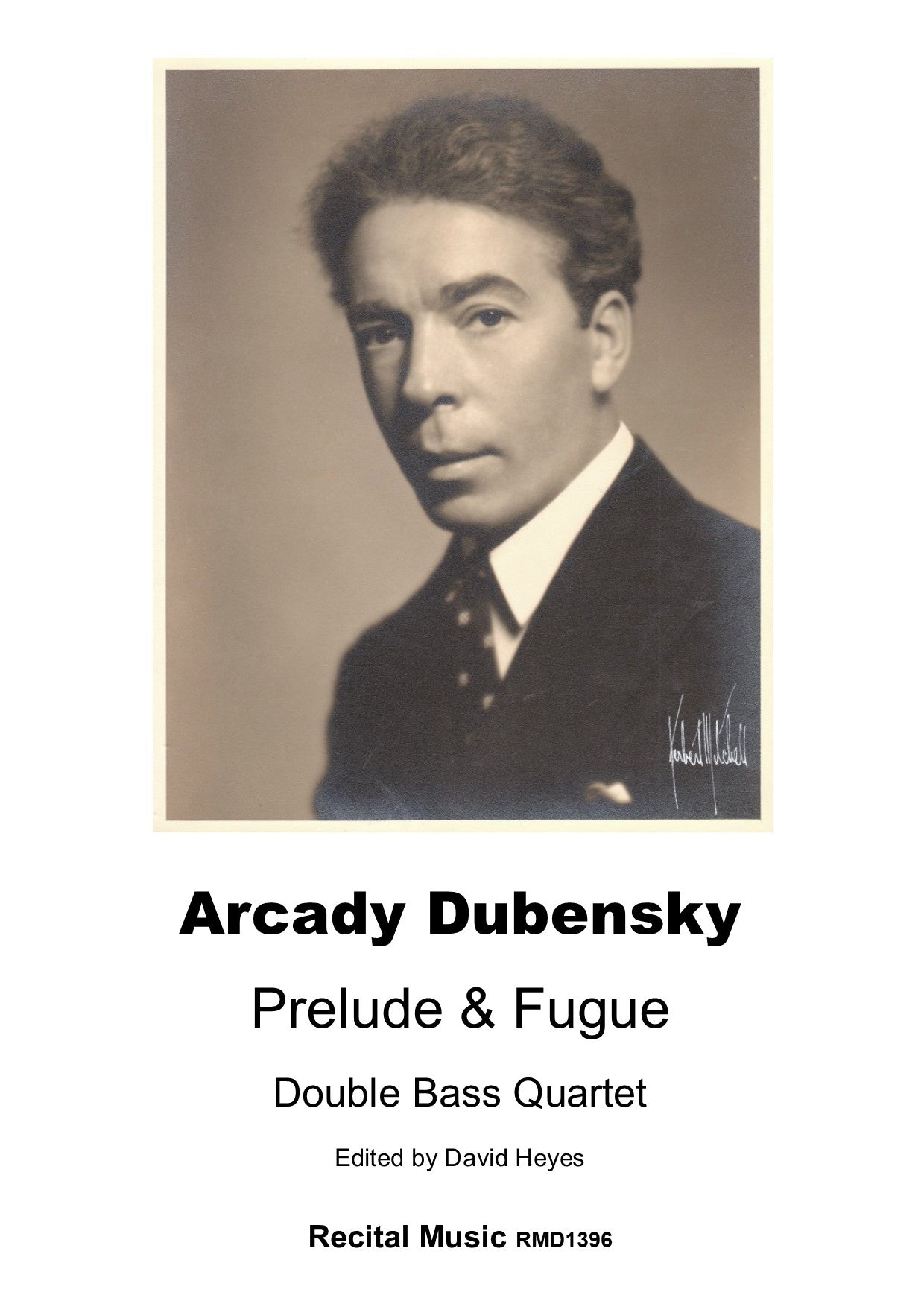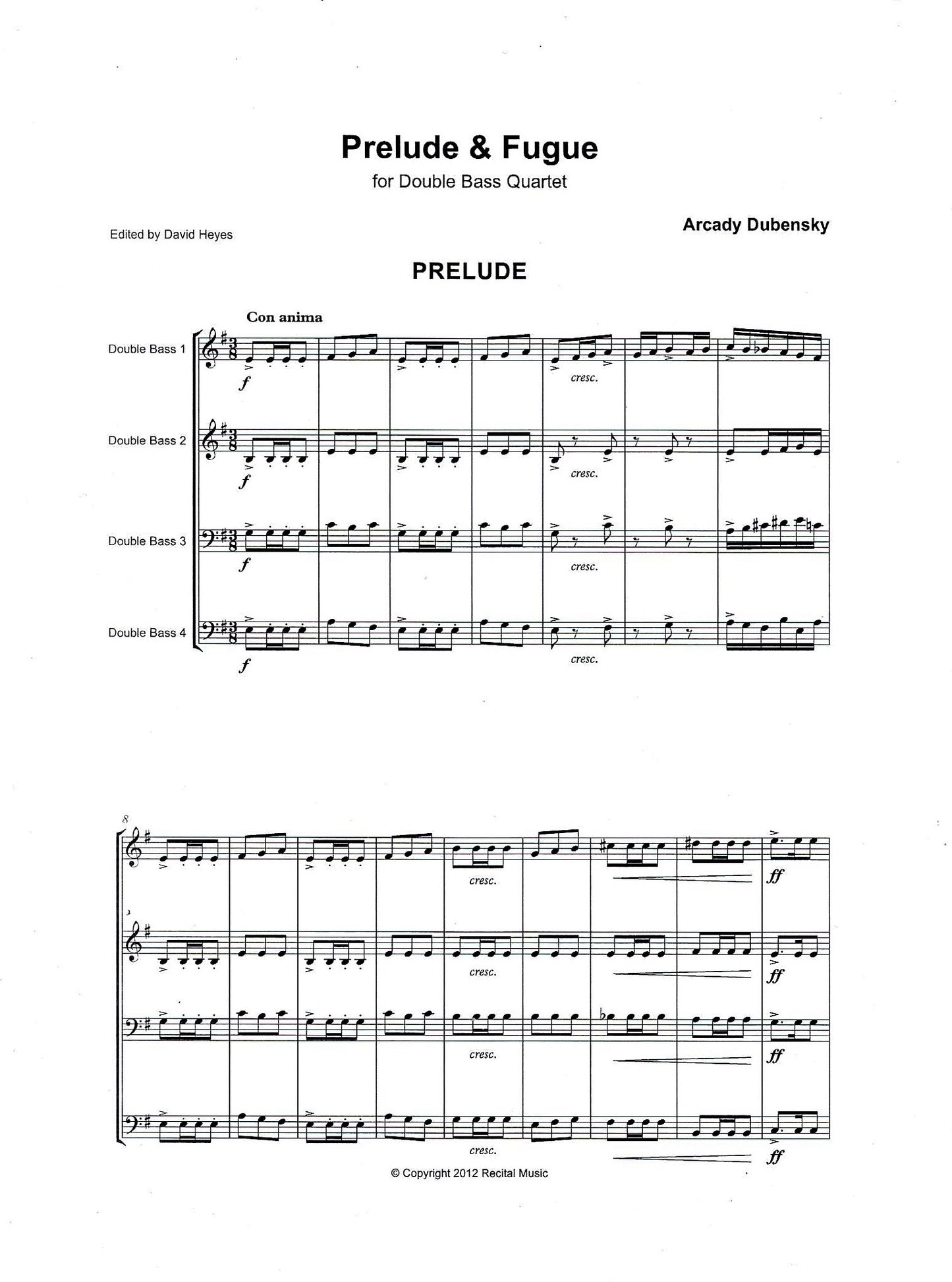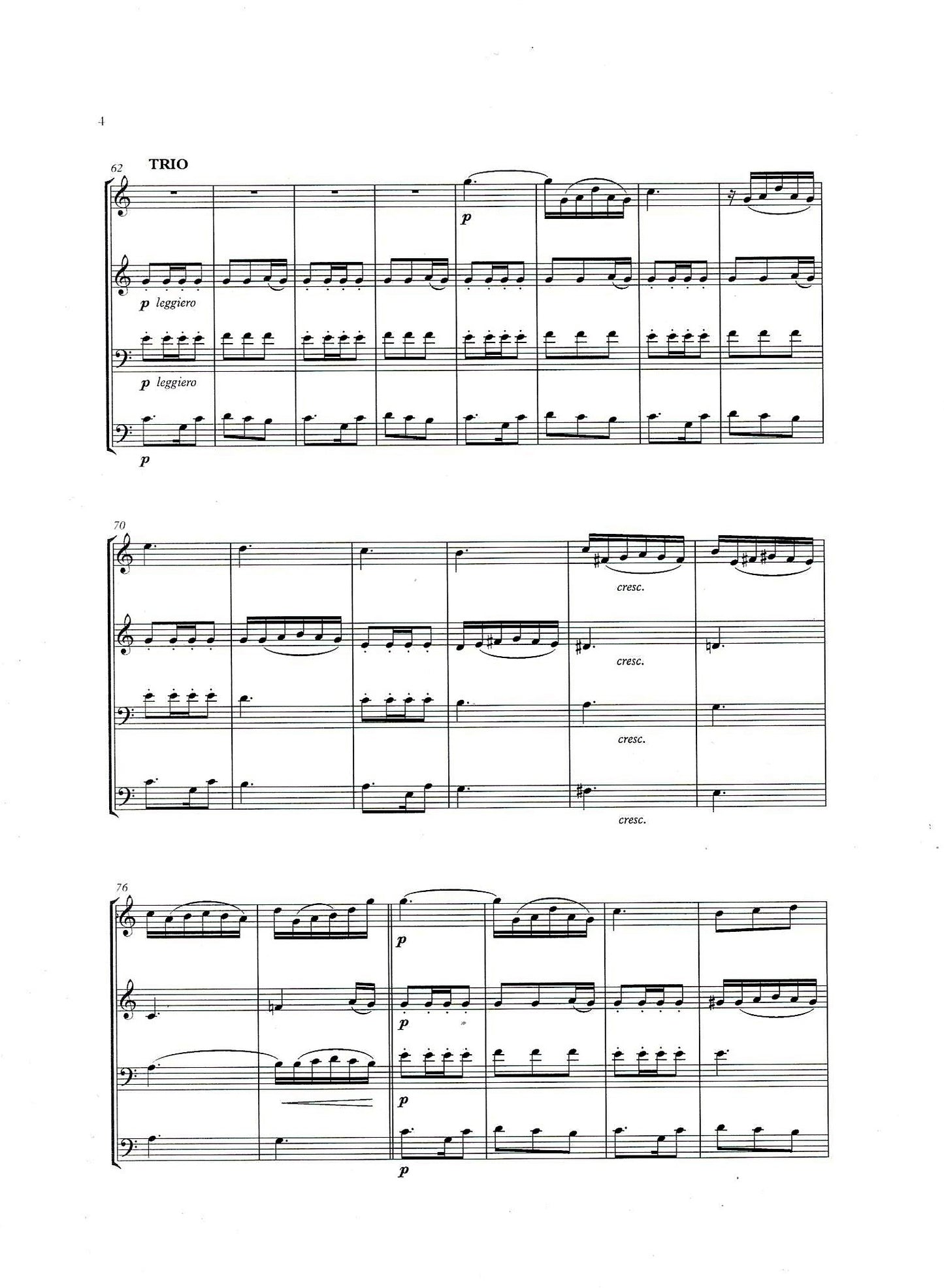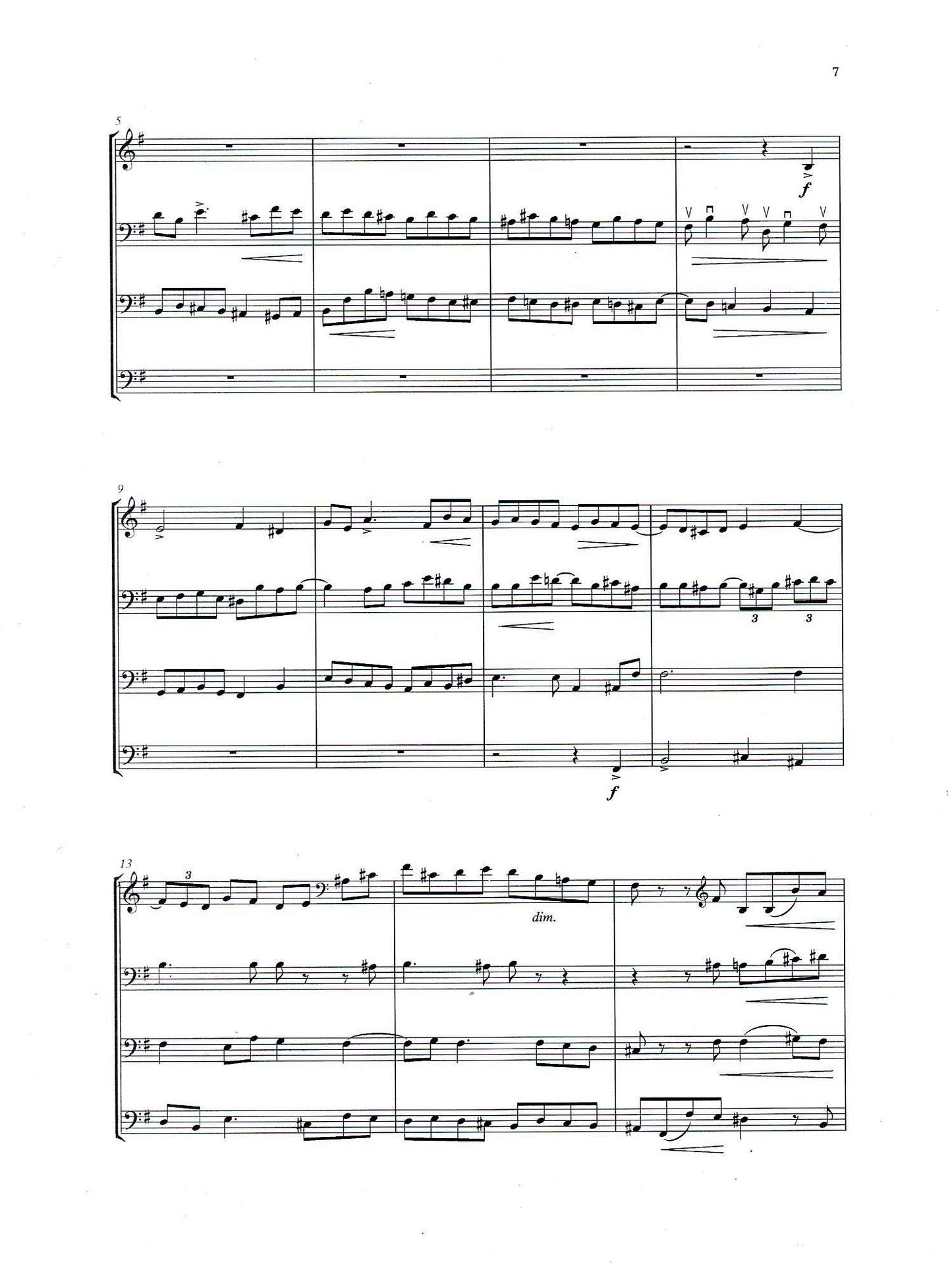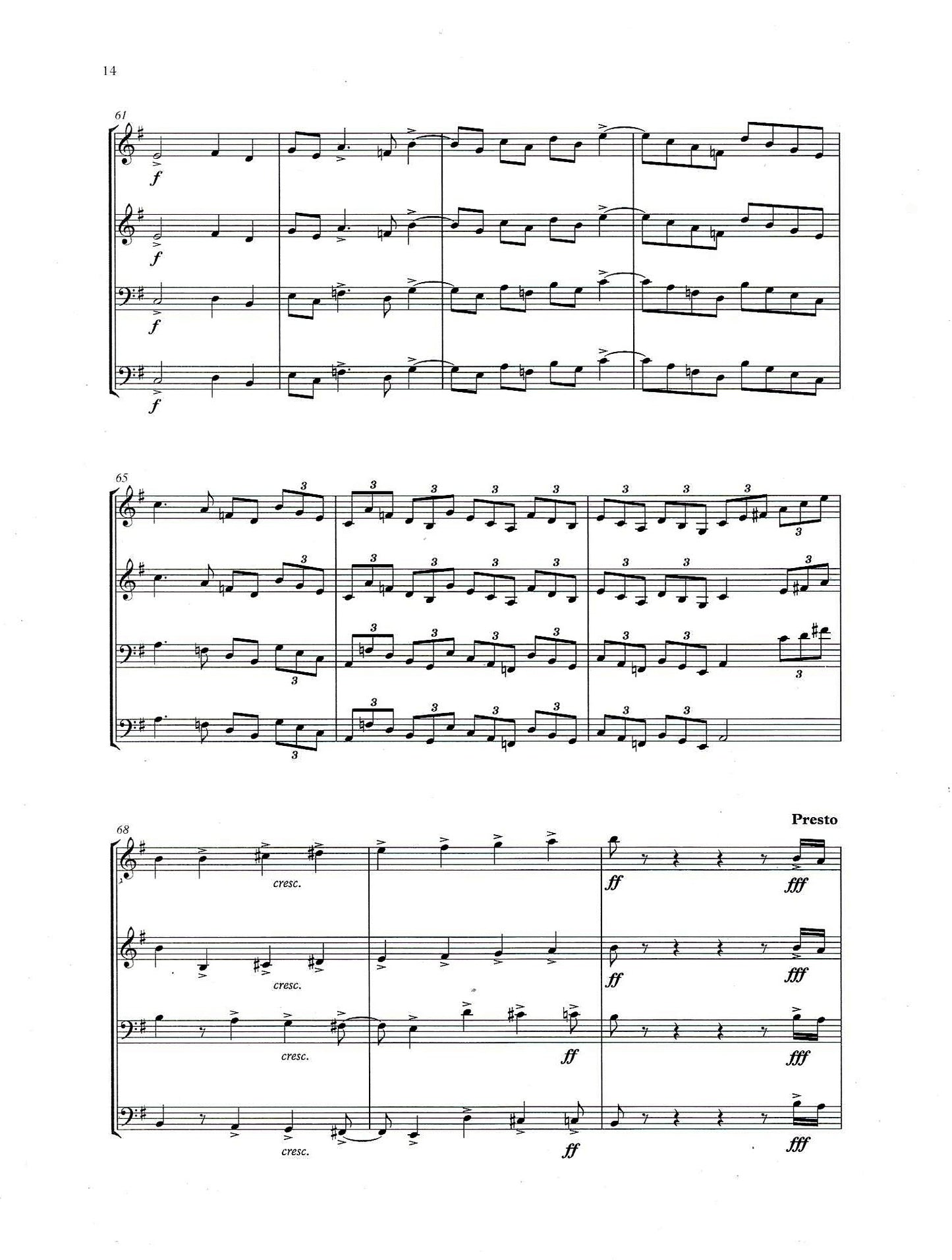David Heyes
Arcady Dubensky: Prelude & Fugue for double bass quartet
Arcady Dubensky: Prelude & Fugue for double bass quartet
Couldn't load pickup availability
About the Composition
Prelude & Fugue is aimed at the advanced bass quartet with effective interplay and dialogue between the four players, creating a colourful and inventive work which exploits the entire range of the double bass. Each player remains within its own range, helping to create clear and open textures with effective technical and musical challenges throughout.
Prelude & Fugue was completed on 16 May 1933 and is one of the first works written for double bass quartet. There is no documentation about the work or any performances, but it is likely that it was written for Dubensky's double bass colleagues in the New York Philharmonic Orchestra.
The composer was confident enough to use the entire range of the double bass and the carefully spaced parts help to create a colourful work of clarity, great energy and invention. There are challenges for each performer and the two contrasting movements offer much for the serious and advanced double bass quartet with all four players remaining in the same tuning.
Prelude & Fugue remained in manuscript until the first published edition by Recital Music in 2013.
About the Composer
Arcady Dubensky was born in Viatka, Russia on 3 October 1890, into a musical family - his father was a dramatic Shakespearian actor and his mother was an opera and operetta singer - and he began to study the violin from the age of six. He became a member of the Viatka Cathedral Choir when he was eight years old and two years later made his concert debut at the Viatka City Theatre as part of the Cathedral Choir. In 1904 he was offered a scholarship to study at the Moscow Conservatoire where he stayed until 1910, studying violin with Dulof (2 years) and Grijimali (4 years), alongside counterpoint with Alexander Illinsky. He subsequently studied in Switzerland with Cesar Thomson (violin) and in Paris with Alexander Glazunov (composition). After graduation he became a 1st violinist with the Moscow Imperial Opera Orchestra (1910-1919), at the same time taking conducting lessons from Arends, Director of the Ballet.
Dubensky left Russia in 1919 and worked for a time in Constantinople, arriving in America in July 1921. From 1921-22 he played first violin with the Capitol Orchestra (New York), and also with the New York Symphony Orchestra (1923-28) until its amalgamation with the New York Philharmonic Society in 1928. From that date until the mid-1950s he played as a second violinist with the New York Philharmonic, alongside his work as a talented and active composer-arranger. Arcady Dubensky died at his home in Tenafly, New York in 1966, aged seventy-six.
